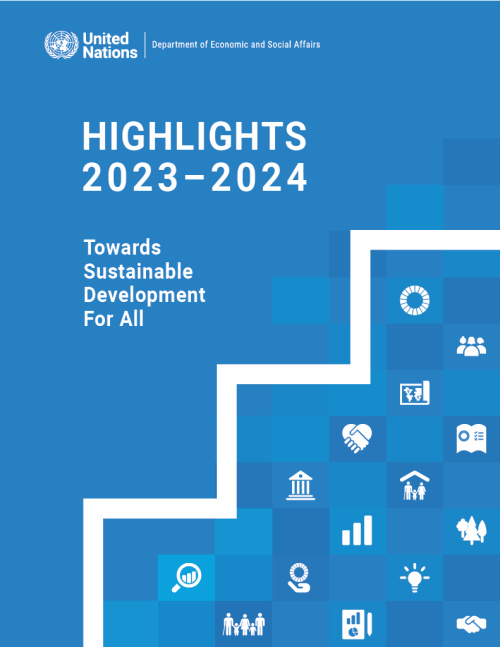
The UN DESA Annual Highlights report is a tool to communicate the contributions of the Department to the realization of internationally agreed development goals and shared social, economic, and environmental aspirations. It showcases the Department’s role in gauging trends, building capacities, and shaping solutions. UN DESA Highlights 2023–2024 covers activities over the period of the 78th Session of the General Assembly (September 2023 – August 2024) and reflects the Department’s response to the set priorities and expressed needs of Member States. Seven (7) thematic chapters showcase how UN DESA put its expertise to the task of supporting Member State efforts to implement the 2030…
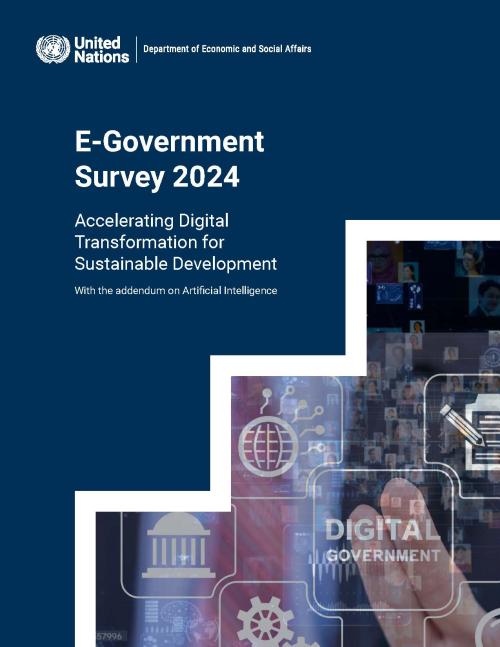
This thirteenth edition of the United Nations E-Government Survey, released in 2024, provides a comprehensive assessment of the digital government landscape across all 193 Member States. The 2024 Survey highlights a significant upward trend in the development of digital government worldwide, with increased investment in resilient infrastructure and cutting-edge technologies. The global average value of the E-Government Development Index (EGDI) shows substantial improvement, with the proportion of the population lagging in digital government development decreasing from 45.0 per cent in 2022 to 22.4 per cent in 2024.
Despite significant progress in digital government…
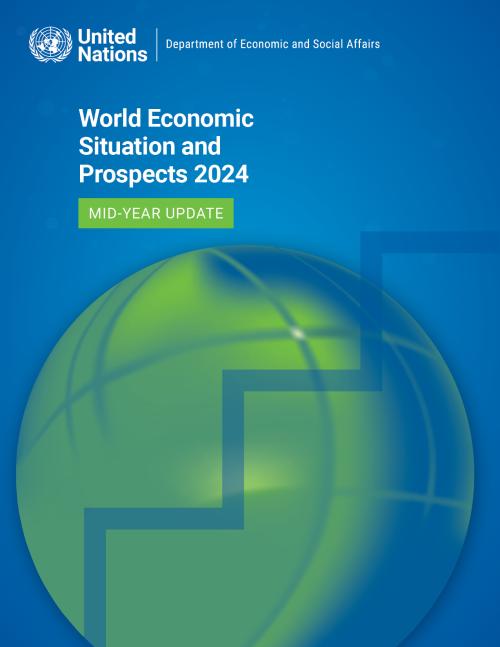
Global economic prospects have improved since January, with major economies avoiding a severe downturn, bringing down inflation without increasing unemployment. However, the outlook is only cautiously optimistic. Higher-for-longer interest rates, debt sustainability challenges, continuing geopolitical tensions and ever-worsening climate risks continue to pose challenges to growth, threatening decades of development gains, especially for least developed countries and small island developing States.
According to the World Economic Situation and Prospects as of mid-2024, the world economy is now projected to grow by 2.7 per cent in 2024 (+0.3 percentage points from the January…
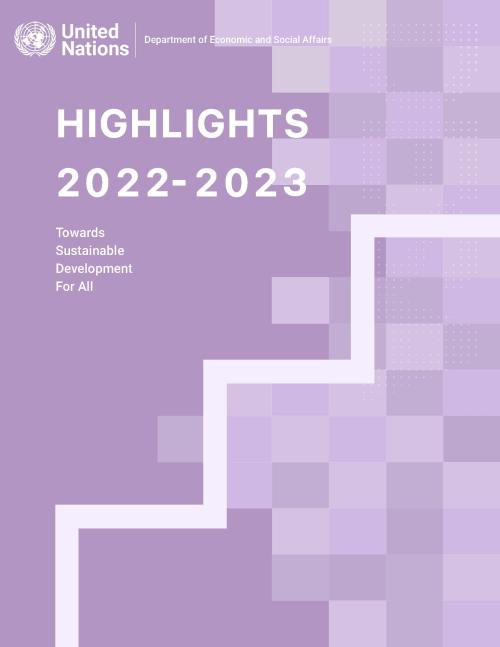
The UN DESA Annual Highlights report is a tool to communicate the contributions of the Department to the realization of internationally agreed development goals and shared social, economic, and environmental aspirations. It showcases the Department’s role in gauging trends, building capacities, and shaping solutions. UN DESA Highlights 2022-2023 covers activities over the period of the 77th Session of the General Assembly (September 2022 – August 2023) and reflects the Department’s response to the set priorities and expressed needs of Member States. Seven (7) thematic chapters showcase how UN DESA put its expertise to the task of supporting Member State efforts to implement the 2030…
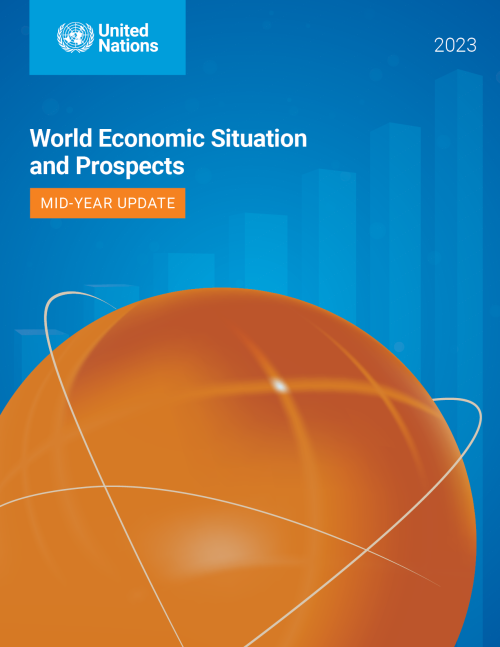
Prospects for a robust global economic recovery remain dim amid stubborn inflation, rising interest rates and heightened uncertainties. Instead, the world economy faces the risk of a prolonged period of low growth as the lingering effects of the COVID-19 pandemic, the ever-worsening impact of climate change and macroeconomic structural challenges remain unaddressed, according to the World Economic Situation and Prospects as of mid-2023 released today.
According to the report, the world economy is now projected to grow by 2.3 per cent in 2023 (+0.4 percentage points from the January forecast) and 2.5 per cent in 2024 (-0.2 percentage points), a slight uptick in the global growth…
The United Nations E-Government Survey 2022 is the 12th edition of the United Nations’ assessment of the digital government landscape across all 193 Member States. The E-Government Survey is informed by over two decades of longitudinal research, with a ranking of countries based on the United Nations E-Government Development Index (EGDI), a combination of primary data (collected and owned by the United Nations Department of Economic and Social Affairs) and secondary data from other UN agencies.
This edition of the Survey includes data analysis in global and regional contexts, a study of local e-government development based on the United Nations Local Online Service Index (LOSI),…
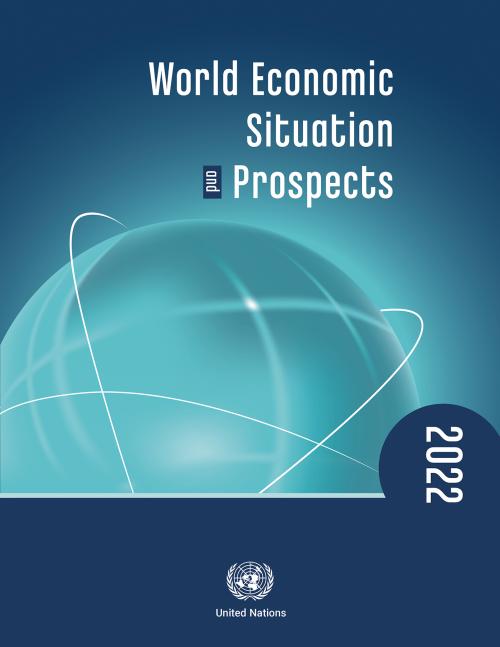
The global economic recovery is facing significant headwinds amid new waves of COVID-19 infections, persistent labour market challenges, lingering supply-chain challenes and rising inflationary pressures. After expanding by 5.5 per cent in 2021, the global output is projected to grow by only 4.0 per cent in 2022 and 3.5 per cent in 2023, according to the United Nations World Economic Situation and Prospects (WESP) 2022.
The robust recovery in 2021 – driven by strong consumer spending and some uptake in investment, with trade in goods surpassing pre-pandemic levels — marked the highest growth rate in more than four decades, the Report highlighted. Yet the momentum for growth –…
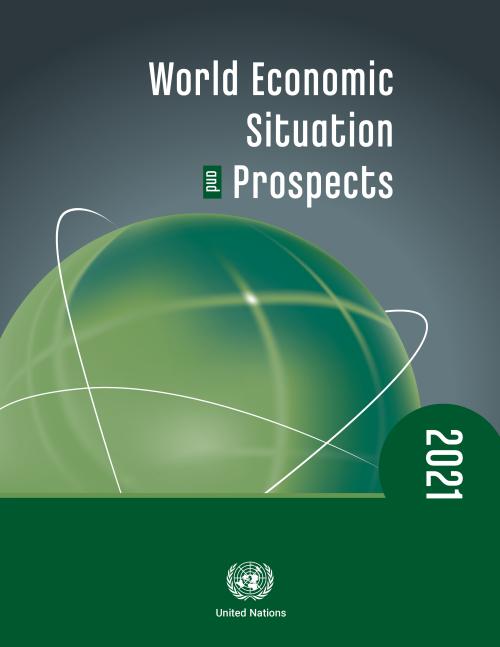
The United Nations today warned that the devastating socio-economic impact of the COVID-19 pandemic will be felt for years to come unless smart investments in economic, societal and climate resilience ensure a robust and sustainable recovery of the global economy.
In 2020, the world economy shrank by 4.3 per cent, over two and half times more than during the global financial crisis of 2009. The modest recovery of 4.7 per cent expected in 2021 would barely offset the losses of 2020, says the latest World Economic Situation and Prospects.
The report underscores that sustained recovery from the pandemic will depend not only on the size of the stimulus measures, and the…
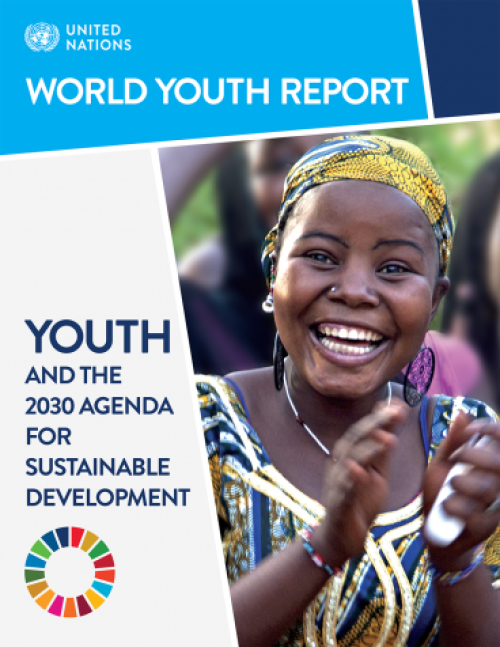
The World Youth Report on “Youth and the 2030 Agenda for Sustainable Development”, prepared by the United Nations Department of Economic and Social Affairs (UN DESA), examines the mutually supportive roles of the new agenda and current youth development efforts. The report provides insight into the role of young people in sustainable development in the context of the implementation of the 2030 Agenda for Sustainable Development and related frameworks, in particular, the Addis Ababa Action Agenda of the Third International Conference on Financing for Development and the World Programme of Action for Youth.
The Report considers the role the 2030 Agenda can play in enhancing youth…
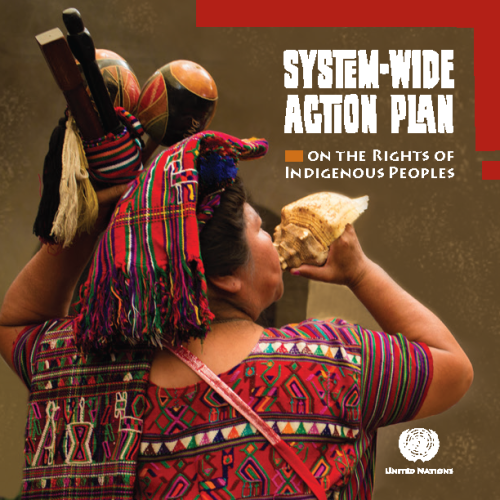
This action plan builds on the momentum and spirit of the 2014 World Conference on Indigenous Peoples and to this end will promote partnership and collaboration between the UN system, civil society organizations, and multilateral bodies such as regional development banks and human rights special procedures and commissions.
This system wide action plan will contribute to the fit for purpose agenda by ensuring stronger linkages between the normative and operational work of the United Nations, increasing coordination and coherence in addressing the rights of indigenous peoples. It calls for strengthened United Nations senior level engagement, encouraging work with Member…

In Africa, as in other regions, persons with disabilities are disproportionately likely to live in poverty and, too often, lack access to education, health care, employment opportunities, housing, social protection systems, justice, cultural expression and participation in political life. The ability of persons with disabilities to participate in society is often frustrated because physical environments, transportation and information and communications systems are not accessible.
In this context, a Toolkit on Disability for Africa has been developed by the United Nations Department of Economic and Social Affairs (UNDESA), Division for Social Policy and Development (DSPD). It is…
Although a modest global recovery is projected for 2017-18, the world economy has not yet emerged from the period of slow growth, characterised by weak investment, dwindling trade and flagging productivity growth, according to the United Nations World Economic Situation and Prospects (WESP) 2017 report.
The report states that the world economy expanded by just 2.2 per cent in 2016, the slowest rate of growth since the Great Recession of 2009. World gross product is projected to grow by 2.7 per cent in 2017 and 2.9 per cent in 2018, a slight downward revision from the forecasts made last May.
Launching the report at the UN Headquarters in New York, Mr. Lenni Montiel,…
 Welcome to the United Nations
Welcome to the United Nations